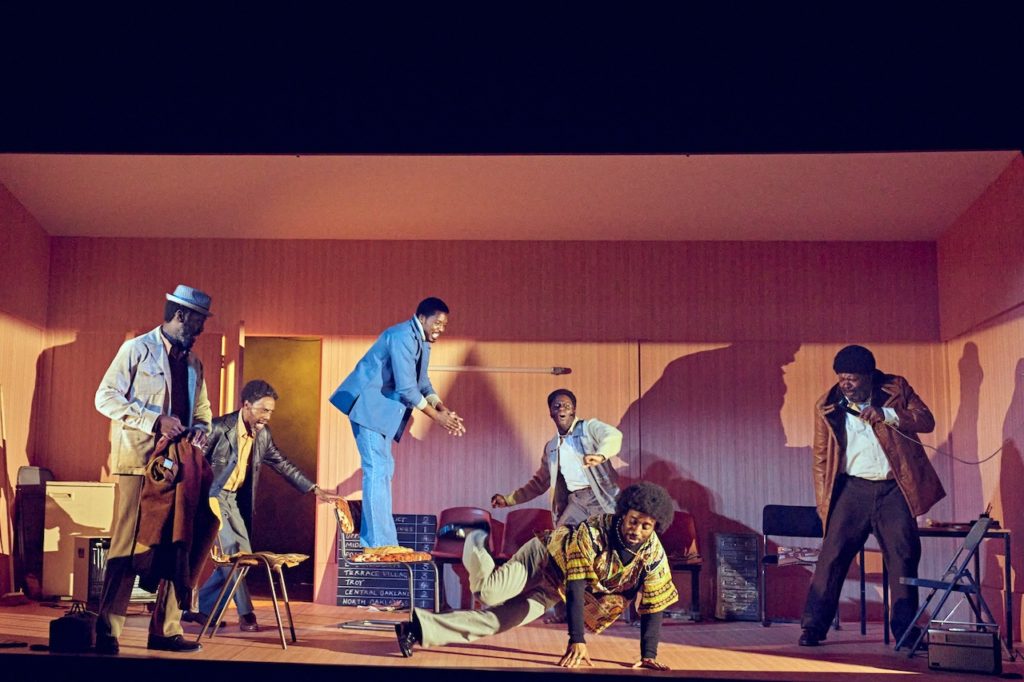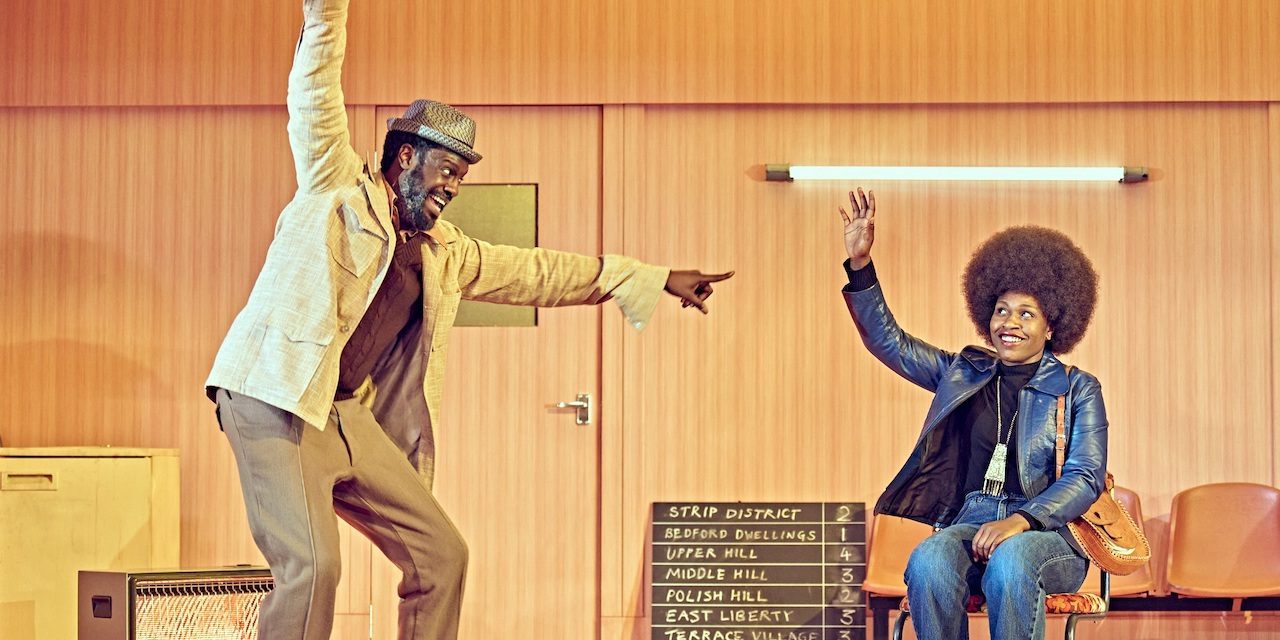
26 – 30 July
Shot through with compassionate understanding, Jitney is a magnificent ensemble piece of work. In the office of a run-down taxi service in 1970s Pittsburgh, we meet eight black men and one woman, all struggling in a world largely indifferent to the injustices that blight their daily lives. That they are disenfranchised from the American Dream is emphasised by Alex Lowde’s set design, which frames the sparsely furnished office within a broad black surround so that it seems to float in isolation. However, though it underpins much of the narrative, racial inequality is not overtly dwelt on. The focus is upon character. We get to know these people, foibles, flaws and all; we see the inner tensions and exterior threats that could drive them apart, and the ties that bind them together.
Becker (Wil Johnson) is the boss of the taxi firm; upright, dignified, and anxious that his staff should follow the rules, but forgiving them when they don’t. He is haunted by the knowledge that his gifted son Booster (Blair Gyabaah) threw away a promising career and has spent the last twenty years in jail. Johnson’s performance is the central pillar of this production. In an intensely powerful scene Becker confronts the newly released Booster and his natural inclination to forgive deserts him. All of his accumulated anger, frustration about what could have been, spills out in a rising, raging torrent of despair.
In a neat and amusing contrast there is also a confrontation between two of the youngest characters when ambitious, go-getter Youngblood (Solomon Israel) reveals that he has been keeping a big secret from his girlfriend Rena (Leanne Henlon). He had been hoping to give her a romantic surprise, but Youngblood discovers that Rena is the kind of girl who expects to be fully informed about such matters from the start. After putting him firmly in his place, she sweetly forgives him.
Far less sweet is Turnbo (Sule Rimi), middle-aged but childishly obsessed with other people’s private lives. He sees himself as a moral arbiter but he’s motivated by a need to put others down. Rimi’s performance skilfully hints at Turnbo’s deep insecurity and makes this divisive, mouthy character eminently watchable.
A particular feature of Wilson’s writing is that when characters present opposing points of view we are left to decide who is right. This even-handedness is especially striking in his presentation of the generational differences that emerge regarding how to respond to injustice. Kindly old Doub (Geoff Aymer), speaks of the pointlessness of constantly railing against the white community: ‘Hell, they don’t even know you alive.’ His war experiences in Korea are echoed by Youngblood’s in Vietnam. They both served their country and got little or nothing in return. Doub’s response is pragmatic, resigned; Youngblood is less willing to accept the status quo.
Jitney is set in a very specific part of the USA at a very specific time, but with an all-British cast Director Tinuke Craig has performed wonders in making it seem entirely relevant to us today. The first play in Wilson’s ten-part American Century cycle, it is a little overcrowded and at least one character could be shed at no great loss to the overall thrust of the work. Nevertheless, featuring splendid performances from a highly talented cast, Jitney is a very moving, must-see show.
★★★★☆ Mike Whitton, 27th July 2022
Photo credit: Manuel Harlan


